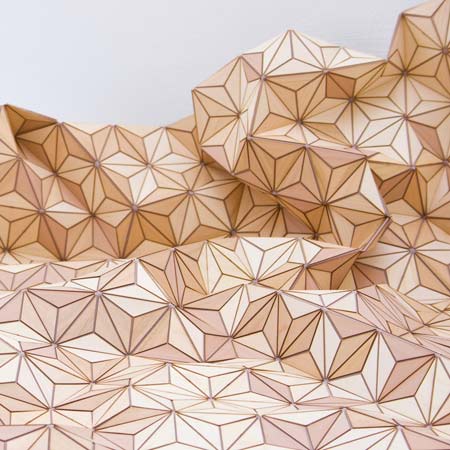
Wooden Carpet by Elisa Stroyzk
German design student Elisa Stroyzk has created a rug made of wood-veneer offcuts.
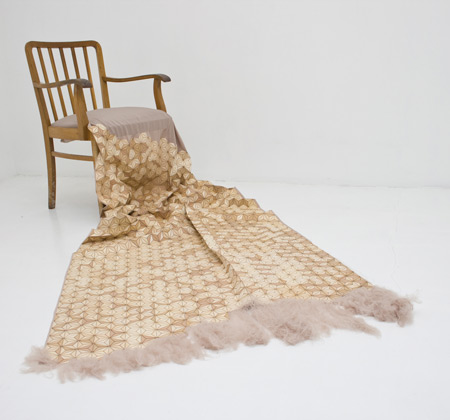
The geometric pieces are laser-cut or cut by hand then bonded to a textile backing.
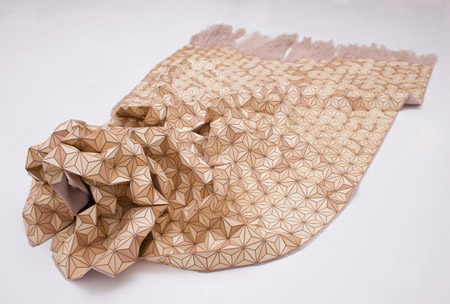
Stroyzk is currently studying at Central Saint Martins college of art and design in London.
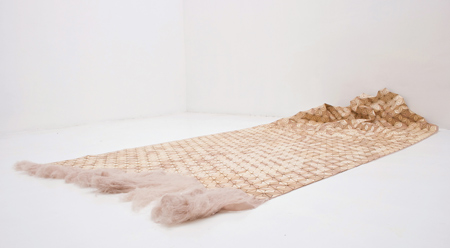
Photos are by Sebastian Neeb.
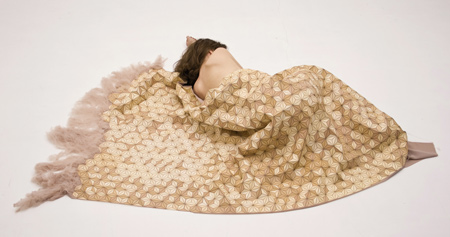
Here's some more information from Elisa Stroyzk:
--
I am currently graduating from Central St. Martins College in London and for my MA project I developed a "wooden textile", an innovative material for interiors.
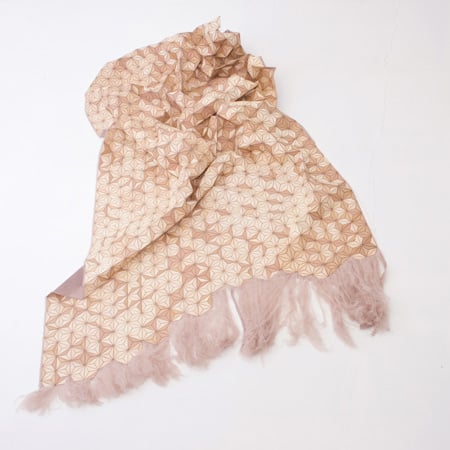
The project “wooden textiles” intends to look at the material wood in a new way. Geometric wooden pieces compose a flexible surface which can perform in different three-dimensional shapes. The material ranges between hard and soft, parquet and carpet, blurring relationships between furniture and textiles.
How can wood transform into a textile?
1. What materials and techniques have you used?
I was working with veneer wood leftovers from a wood workshop which is closing down. The wood is cut by hand or lasercut into pieces of different geometric shapes. All pieces are stuck by hand on a textile base and compose a flexible surface.
2. What inspires you?
Material itself and our presumptions about it. I like to switch properties and meanings and pose questions like: Can a hard material be liquid or soft? I look at everyday objects around us and try to rethink their function or imagine hybrids between them.
3. What does Textile Futures means to you?
In the future we will have to deal with more waste and less resources. Therefore it is fundamental to be aware about lifecycles of objects. For me that means to use material that is able to grow old beautifully. Another way to save resources is working with reused or recycled objects and material waste. Also it is crucial to aim for a closer relationship between subject and object. This can be achieved through more flexibility and changeability, the possibility of growth or surprising elements.
about ELISA STROYZK:
*born 1982 in Berlin
2007-2009: MA Future Textile Design at Central Saint Martins London
2007: Diploma in Textile and Surface Design at KHB Berlin
2006: Study at ENSAD in Paris
2008: winner of Samsonite-competition " Future Travel"
Internships at Samsonite, PvanB wallpapers